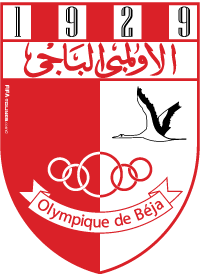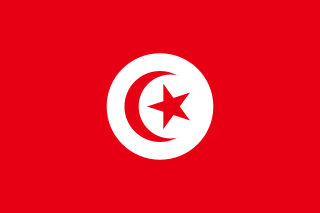
 |
|---|
|
The Tunisian Ministry of the Interior is a government ministry of Tunisia, responsible mainly for internal affairs.[ citation needed ]

 |
|---|
|
The Tunisian Ministry of the Interior is a government ministry of Tunisia, responsible mainly for internal affairs.[ citation needed ]
In a communiqué released on Monday 7 March 2011, the Tunisian Ministry of the Interior said it has already started implementing the following measures: [1]
In this communiqué the Interior Ministry said all these practical measures are in harmony with the values of the revolution and are designed to comply with the law, in theory and practice, in materialisation of the climate of confidence and transparency in the relationship between security services and the citizens. These measures, adds the communiqué, were also taken to overcome the deficiencies noted under the former regime. They are also part of the re-organisation of the Home Security structures by drawing inspiration on regulations in force in democratic States as well as the expertise and experiences of these countries.
These measures and decisions, said the communiqué, are part of the new approach of the Interior Ministry's competences and the will to continue the action already started to contribute to achieving the attributes of democracy, dignity and freedom.
The National Guard Special Unit (USGN) (French: Unite Speciale' Garde Nationale) is a Tunisian counter-terrorism unit created in the 1980s and based in Hammamet. It appears to be part of the National Guard of Tunisia, itself part of the Ministry of the Interior (Tunisia).
The Anti-terrorist Brigade (فرقة مجابهة الارهاب) or BAT, whose members are referred to as « black tigers », is the unit of the Tunisian national police specialized in paramilitary operations during particularly serious events. According to OTAN's definition, the BAT is a special force. Its role notably includes taking action during crisis situations, such as hostage-taking on boats, aircraft, in cities etc, arresting high-risk criminals, and contributing to the fight against terrorism. The BAT is based in Tunis, at the headquarters of the intervention units at the Bouchoucha barracks, with the training and education centre located in Béjal. Joining the unit comes along with highly strict requirements, especially in terms of physical, medical, mental and psychotechnical fitness; it recruits the best people of the national police. Its motto is "Speed. Force. Effectivity".
The unit comprises 50 men divided into three sections (two operational, one headquarters). The USGN is reinforced by the National Guard Commando Company (GCGN) (French: Groupment de Commando de la Garde Nationale). [2]
La Brigade nationale de détection et de neutralisation d'explosifs (الفوج الوطني للمتفجرات ) or BNE is a Tunisian brigade specialising in explosives and bomb disposal. It also contributes to the fight against terrorism. The BNE is based in the headquarters of the intervention units in Bouchoucha barracks (Tunis) but it is also present in the country's major cities and at all border crossings. Access to the unit requires very strict criteria, particularly with regard to physical fitness, medical, psychological and psychotechnical tests; it recruits from the best elements of the national police and specialists in chemistry and electronics. The agents have a double capacity: that of participating in armed interventions and that of artificers.

The National Police, formerly known as the Sûreté nationale, is one of two national police forces of France, the other being the National Gendarmerie. The National Police is the country's main civil law enforcement agency, with primary jurisdiction in cities and large towns. By contrast, the National Gendarmerie has primary jurisdiction in smaller towns, as well as in rural and border areas. The National Police comes under the jurisdiction of the Ministry of the Interior and has about 145,200 employees. Young French citizens can fulfill their mandatory service in the police force.

Muhammad VIII al-Amin commonly known as Lamine Bey, was the last Bey of Tunis, and also the only King of Tunisia.

The Central Directorate of Public Security (DCSP) is the uniformed patrol and response arm of the French National Police responsible for keeping the peace and maintaining public order in the cities and large towns of France. Established on 23 April 1941, and its current structure operates under the Decree of 23 December 1993Aleksander Olech, French and Polish fight against terrorism, Poznan 2022, p. 90; https://www.researchgate.net/publication/359135918_French_and_Polish_fight_against_terrorism.

A Research and Intervention Brigade, Investigation and Intervention Brigade or Anti-Gang Brigade) is a unit of the French National Police. The first units were formed in 1964 and carried out their tasks under the command of the Paris prefecture.

Stade Tunisien or ST is a football club from Bardo, Tunis, Tunisia. Alongside Espérance de Tunis and Club Africain it forms the group of three best teams in the capital city region. Founded in 1948, it is the successor of the football section of the defunct Association of Young Muslims of Bardo founded in 1923. The team plays in green, red and white colours, after the Bey colours, as the team was under their patronage until the Tunisian independence. Their ground is Hédi Enneifer Stadium, which has a capacity of 12,000.

The National Gendarmerie is one of two national law enforcement forces of France, along with the National Police. The Gendarmerie is a branch of the French Armed Forces placed under the jurisdiction of the Ministry of the Interior, with additional duties from the Ministry of Armed Forces. Its responsibilities include policing smaller towns, suburbs and rural areas, crowd and riot control, criminal investigation, including cybercrime. By contrast, the National Police is a civilian law enforcement agency that is in charge of policing cities and larger towns. Because of its military status, the Gendarmerie also fulfills a range of military and defence missions. The Gendarmerie has a strength of around 102,269 people.

Olympique de Béja, known as O Béja or simply OB for short, is a Tunisian football club based in Béja. The club was founded in 1929 and its colours are red and white. Their home stadium, Boujemaa Kmiti Stadium, has a capacity of 15,000 spectators. The club is currently playing in the Tunisian Ligue Professionnelle 1.
Nizar bin Muhammad Nasar Nawar (1978-2002), an alleged member of the Tunisian Combat Group, was accused of carrying out the 2002 Ghriba synagogue bombing, after planning its execution while living in Montreal, Canada.

The Tunisian National Guard is the national gendarmerie force of the Republic of Tunisia and separated from the Tunisian Armed Forces.

The Kingdom of Tunisia was a short-lived country established as a monarchy on 20 March 1956 after Tunisian independence and the end of the French protectorate period. It lasted for a period of one year and five months between 20 March 1956, the day of the independence, until 25 July 1957, the day of the declaration of the republic. Its sole monarch, titled Bey of Tunis, was Muhammad VIII al-Amin who appointed the Prime Ministers Tahar Ben Ammar and Habib Bourguiba.

The Chaambi Operations, or Battle of Chaambi were part of the insurgency in the Maghreb. In December 2012, the Tunisian Army launched an offensive against the Salafist jihadists in Jebel ech Chambi near Kasserine. The conflict ended with the victory of the Tunisian Army in 2019.

Étoile Sportive de Radès, often referred to as ESR is a basketball and football club from Radès, Tunisia. Founded in 1948, the team plays in blue and white colors. The team used to be called Union Sportive Radèsienne before 1965.

The Ministry of National Defence is a government ministry office of the Republic of Tunisia, responsible for coordinating and supervising all agencies and functions of the government concerned directly with national security and the Tunisian Armed Forces. The current minister is Imed Memmich since 2021.
On 24 November 2015, a bus carrying Tunisian presidential guards exploded, killing 12, on a principal road in Tunis, Tunisia. ISIL claimed responsibility for the attack. The bomber, who also died in the attack, was identified as Houssem Abdelli.

The Ministry of Justice is a government ministry office of the Republic of Tunisia, responsible for justice affairs.
Events in the year 2020 in Tunisia.
Events in the year 2021 in Tunisia.
The Ministry of the Pen was a ministerial position in Tunisia between 1860 and the end of the monarchical regime in 1957.
The Battle of Touayel is a confrontation between Tunisian law enforcement forces and jihadists that took place in Tunisia in October 2013.